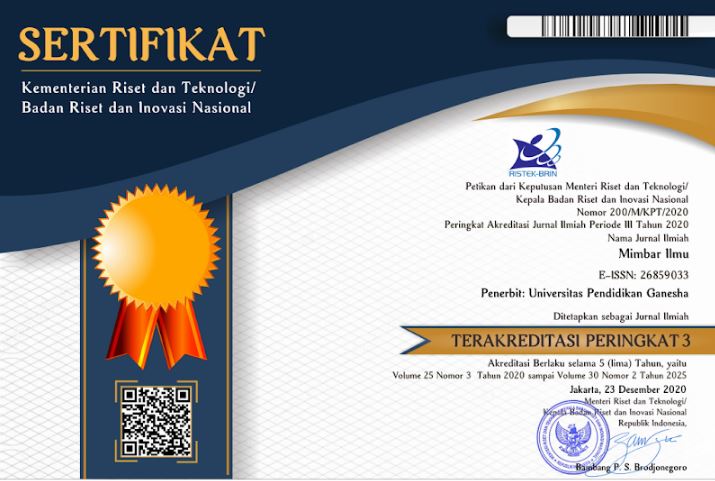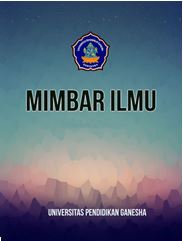Higher Order Thinking Abilities: Critical Thinking Abilities on Science Process Skills the Subject of Elasticity and Hooke's Law
DOI:
https://doi.org/10.23887/mi.v29i2.67583Keywords:
Critical Thinking Ability, Elasticity and Hooke's Law, High School, Physics, Science Process SkillsAbstract
The rapid development of the world of education requires students to have critical thinking skills and scientific process skills in order to be able to face various problems in everyday life. This study aims to analyze the effect of critical thinking skills on scientific process skills on the subject of material elasticity and Hooke's law. The type of research used in this study is associative quantitative research. The population used was all students with a sample of 30 grade XI students. The sampling technique used purposive sampling. The research instruments used were essay tests and observation sheets. The data analysis technique used was descriptive statistical tests, the assumption test was the normality test and linearity test, and the hypothesis test was a simple linear regression test. The results of the descriptive statistical test showed that the critical thinking skills of students in each State High School were different, as well as the science process skills of students in each State High School were also different. The results of the normality test showed that the data was normally distributed with sig. > 0.05, then the results of the linearity test showed linear data with sig. > 0.05, and the results of the simple linear regression test showed that there was an influence between critical thinking skills and science process skills with a sig. < 0.05. So, it can be concluded that critical thinking skills influence scientific process skills in material elasticity and Hooke's law.
Published
How to Cite
Issue
Section
License
Copyright (c) 2024 Astalini, Darmaji, Dwi Agus Kurniawan, Sri Muslimatul Husna

This work is licensed under a Creative Commons Attribution-ShareAlike 4.0 International License.
This work is licensed under a Creative Commons Attribution-ShareAlike 4.0 International License.
Authors who publish with this journal agree to the following terms:
- Authors retain copyright and grant the journal right of first publication with the work simultaneously licensed under a Creative Commons Attribution License that allows others to share the work with an acknowledgment of the work's authorship and initial publication in this journal.
- Authors are able to enter into separate, additional contractual arrangements for the non-exclusive distribution of the journal's published version of the work (e.g., post it to an institutional repository or publish it in a book), with an acknowledgment of its initial publication in this journal.
- Authors are permitted and encouraged to post their work online (e.g., in institutional repositories or on their website) prior to and during the submission process, as it can lead to productive exchanges, as well as earlier and greater citation of published work.








